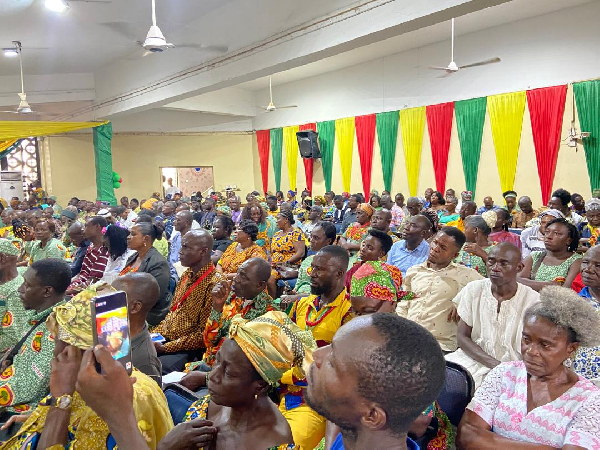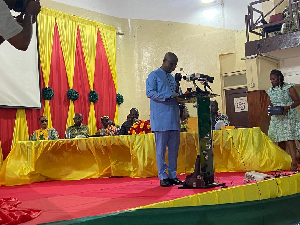The Traditional and Alternative Medicine Directorate of the Ministry of Health (MOH) commemorated the 22nd African Traditional Medicine Day and the 25th Traditional Medicine Week in Ghana on October 17, 2024, under the theme: "Support the provision of quality and safe traditional medicine through appropriate regular mechanisms."
The event, which brought together key stakeholders from across the healthcare sector, highlighted the significant role traditional medicine plays in the health and well-being of millions of Ghanaians and Africans at large.
Director for Procurement and Supply Chain at the MOH Dr Edward Bright Agyekum speaking on behalf of the Health Minister underscored the contributions of traditional, complementary, and alternative medicine to achieving Universal Health Coverage (UHC) and the broader Sustainable Development Goals (SDGs) by 2030.
He acknowledged the substantial progress made in integrating herbal medicine into mainstream healthcare through initiatives such as the Integration Policy.
This policy has institutionalized herbal medicine services in 60 government hospitals across the country, allowing patients to access medical herbalists trained at institutions such as the Kwame Nkrumah University of Science and Technology (KNUST).
The services are covered by the National Health Insurance Scheme (NHIS), reflecting the government’s commitment to making traditional medicine accessible and affordable.
The minister highlighted key milestones, including the 2021 launch of essential traditional medicine policy documents, the second edition of the Recommended Herbal Medicines List (RHML), and the Basic Procedures for the Assessment of Efficacy and Safety of Herbal Medicinal Products.
These efforts, according to the minister, have positioned Ghana as a leader in traditional medicine within Africa.
However, he stressed the need for continued collaboration between the Ministry of Health, traditional medicine practitioners, research institutions, and international partners to address existing challenges, particularly in the areas of regulation, quality control, and safety of herbal products.
"We are aware of the gaps and challenges confronting the industry…It is only through collaboration that we can achieve the objectives and policies we have set for traditional medicine in Ghana,” the minister noted.
The President of the Ghana Federation of Traditional Medicine Practitioners Associations (GHAFTRAM) called for a collaboration effort to revamp the face of traditional medicine in the country.
“Together, it is possible for us to achieve our dream in the traditional medicine industry.”
The Chairperson of the event, Professor Isaac Kingsley Amponsah, Vice Dean of the Faculty of Pharmacy at KNUST, echoed the Minister's sentiments, emphasizing the importance of effective regulation in preserving the cultural heritage of traditional medicine while ensuring it meets modern health standards.
He applauded the collaborative efforts between government agencies such as the Traditional Medicine Practice Council (TMPC), the Food and Drugs Authority (FDA), and research institutions in advancing the sector.
The Chief Director of the Ministry of Health also urged stakeholders to continue their dedication to improving traditional medicine through research, development, and stringent quality control measures.
He emphasized the role of traditional medicine in building resilient, inclusive healthcare systems, particularly during times of economic uncertainty.
The week-long celebration also highlighted the economic impact of traditional medicine, with the sector providing employment for thousands of Ghanaians and contributing significantly to the nation’s productivity and growth.

AM/EK
Watch the latest episode of #SayItLoud below:
Health News of Saturday, 19 October 2024
Source: www.ghanaweb.com
Ghana celebrates African Traditional Medicine Day
Entertainment












